Alaska beyond the cruise ships
If you’ve ever wondered what an Anchorage-based itinerary can deliver beyond the classic cruise route, consider this your invitation to explore an Alaska that feels wonderfully immersive, uncrowded, ...
Read more
We have the best deals and packages for Alaska. Our cruise travel agents book clients all over the USA. We are your ocean and river cruise experts. Interested in a custom package? Get a custom quote now.
We recognize that cruise vacations are not just an investment, but often the highlights of our lives, and we take that responsibility seriously. We want to ensure you have the best vacation experience. Interested in a job in travel? Click here to learn: How to Become a Cruise Travel Agent
The Aleut people called it Alyeska, the great land. Alaska is one of the world's special places, full of exotic wildlife, magnificent mountains, glacier-carved valleys and steep, rocky coastlines.
Alaska is bigger than life, its sheer mass hard to comprehend. The distance from Barrow, on the northern coast, to Ketchikan, at the southern edge, is more than 1,350 mi/2,174 km—about the same as New York City to Miami. Alaska has six distinct climatic regions, the tallest mountains, the biggest glaciers, the most plentiful fishing and the wildest nature preserves on the North American continent.
Visitors go to Alaska for the fishing, hiking, hunting or camping—Denali National Park is a big attraction. Some go for the northern lights, or to whale-watch while cruising the Inside Passage. Some even go to Alaska for the Iditarod dogsled race.
Even as Alaska vacations become more accessible, distance creates costs. Per-day expenses in remote parts of the state are comparable with those in major urban centers. The abundance of spectacular scenery and wildlife, however, should more than compensate.
Alaska borders the northwest edge of Canada and is actually closer to Russia (just 39 mi/62 km by air across the Bering Strait) than it is to the rest of the U.S. The landscape is dramatic and, because it covers such a huge territory, quite varied. In the south is temperate rain forest (Tongass), and in the north is Arctic desert.
The state is traversed by 14 major mountain ranges, encompassing 17 of the highest peaks in the U.S., including North America's highest mountain, Mount Denali, as well as most of the country's active volcanoes. It has more coastline than all of the other states combined. The geography ranges from endless miles/kilometers of tundra to sheer mountain walls, from the densely forested temperate coasts of the Inside Passage to the permafrost of the treeless Arctic Circle.
The first settlers in Alaska arrived at least 20,000 years ago, when hunters from Asia followed large game over the Bering Strait land bridge into North America. By the time the first Europeans arrived in the mid-1700s, they found several diverse cultures living in Alaska: Whale- and seal-hunting Inupiat and Yupik peoples inhabited the treeless tundra along the Arctic Ocean, Chukchi and Bering sea coasts, and nomadic Athabascan caribou hunters roamed the forested interior along the Yukon River. Alaska's panhandle was home to members of the Tlingit, Tsimshian and Haida groups, who lived in a lush coastal environment.
Even though Russian explorers had seen the Alaskan coast as early as 1741, Europeans didn't venture into the territory's immense interior until well into the 1800s. Even after the U.S. purchased the area in 1867 for cents an acre/hectare, the region remained largely unexplored.
As was often the case elsewhere in the opening of the American frontier, it took the discovery of gold in Juneau in 1880 to get folks headed for Alaska. During the famous Klondike Gold Rush of 1898-99, thousands of rowdy, ambitious and gutsy prospectors and speculators flooded into Dawson, Skagway, Valdez and other towns.
Alaska was made a U.S. territory in 1912, but statehood wasn't granted until 1959. Then the discovery of oil at Prudhoe Bay in 1968 sparked a new rush to Alaska. The construction of the Alaska Pipeline from the Beaufort Sea to the Gulf of Alaska in the 1970s brought new wealth, new jobs and new environmental concerns.
Even now, the debate continues as to how much of Alaska's pristine wilderness should be developed. Most recently, the focus has been on oil development in the Arctic National Wildlife Refuge, declining populations of marine mammals in the Bering Sea, and the impact from cruise-ship travel and other tourist activity, especially in southeastern Alaska.
Alaska's main attractions include spectacular scenery, wildlife viewing, camping, skiing, the northern lights, volcanoes, Inside Passage cruises, hiking, riverboat rides, fishing, canoeing, river and sea kayaking, friendly people, Alaska Native and Russian cultures, totem poles, glaciers and dogsled rides.
Most people will like Alaska, but the state has special appeal for nature lovers and the adventurous. Those on a strict budget may opt to tour the coasts via Alaska's Marine Highway ferries rather than by cruise ships. Motor homes, recreational vehicles and camper vans are available to rent for those who want to explore the state's interior highways or drive the Alaska Highway through Canada.
Alaska is from an Aleut word meaning "great country" or "what the sea breaks against."
The state of Alaska has 33,904 mi/54,585 km of coastline, more than the rest of the U.S. combined.
All Alaskans (who apply and qualify for it) receive an annual Permanent Fund Dividend check that averages around US$1,100 per person (including children). The dividend is funded by North Slope oil taxes and profits from investments.
In the unique history of Alaska, the male-to-female ratio across the state has often been quite imbalanced. As a result, a saying began among Alaskan women that in Alaska "the odds are good, but the goods are odd." This joke has failed to wither with time or the balancing of the odds.
Juneau is the only U.S. state capital that cannot be reached by highway. It is located 573 mi/916 km by air from Anchorage, the state's largest city and populated area. With as many roads as a New England state but a landmass triple the size of Texas (only 12 major highways are open year-round), Alaska is a place where flight is commonplace and pilots are many.
Geologically, Alaska is an amazingly active location. Small earthquakes are common in many parts of Alaska, and midsized ones frequently shake the thinly populated Aleutian Islands. The devastating 1964 Good Friday Earthquake registered 9.2 on the Richter scale, making it the most powerful temblor ever recorded in North America. In addition, 80% of the active volcanoes in the U.S. are in Alaska, and major eruptions in the Aleutian Islands occur almost every year.
Dog mushing is the official state sport of Alaska.
Former Secretary of State William H. Seward bought Alaska from Russia for US$7.2 million in 1867. At approximately US$0.02 per acre/half-hectare, it was a bargain that some called Seward's Folly.
There's nothing quite like experiencing the Last Frontier from a cruise ship: Icebergs and rugged islands glide by, porpoises play in the ship's wake, and whales breach off the side. In Alaskan towns along the way, you can shake a gold pan in a rushing stream and watch native carvers at work on a new totem pole. You can raft down whitewater streams and fly to (and land on) glaciers.
The state is so big, its extremes of climate and geology so great, and its wildlife and history so fascinating that Alaska delights (and uses up film and camera capacity) like few other places on Earth. In fact, with so much to choose from there, it's easy to become overwhelmed. A cruise simplifies some of the decision-making.
Ship lines offer a wide variety of Alaska cruises, so there's an itinerary to satisfy almost everyone. You can ride on a megaship with more than 2,000 passengers and all the comforts of home, and then some, as you visit the state's main ports. Or you can cruise aboard an exploration ship (with 100 other people) that can slip into the narrowest of fjords and get close enough to watch a brown bear snatch a salmon out of the water.
The big cruise lines usually offer a choice of two routes, both of which take you through the Inside Passage, the protected waterway between the mainland and the coastal islands. The emphasis is different, however. The trips known as Inside Passage cruises usually begin in Vancouver, British Columbia, include stops at such southeast Alaska ports as Ketchikan and Juneau, turn around in Glacier Bay and return to Vancouver. Gulf of Alaska cruises (sometimes called Glacier Route cruises) usually run between Vancouver and Seward, with connections through Anchorage so you can add excursions into the interior of the state.
Both routes often include stops at Ketchikan, Juneau and Skagway—one of the most visited ports along the Inside Passage and the main jumping-off point for tours into the Yukon Gold Rush area. Small ships combine the best of both routes, offering stops in smaller ports, visits to hard-to-reach landmarks and more personal attention. Of course, their prices are usually higher, too.
What sets Alaska cruises apart from other cruises is what you can see from the ship's rail: the state's geological wonders. They're just as much a part of the Alaska cruise experience as stops in port.
Some of the sights you may see as you sail past include Columbia Glacier (most ships pass it); College Fjord, with its quintessential examples of tidewater and hanging glaciers; and the vast Glacier Bay National Park, with 35 named glaciers and 11 active tidewater glaciers.
Hubbard Glacier, Misty Fjords National Monument and Tracy Arm Fjord are other dramatic sights that offer visitors the chance to see nature in action.
The Alaska Highway is the ultimate North American driving adventure. A remarkable feat of civil engineering and a reminder of the immense projects undertaken by the Allies in World War II, the Alaska Highway was built in 1942 with the express purpose of strengthening Alaska against invasion.
Cutting through rugged wilderness in an unforgiving climate, the scenic route makes for a splendid long road trip. The road runs 1,387 mi/2,233 km from the interior of Alaska (from Delta Junction, near Fairbanks) through Canada's Yukon Territory to Dawson Creek, British Columbia. Side routes lead southeast to Alaska's Panhandle area, although most southeast cities lack road access.
The Alaska Highway is a reasonably comfortable stretch of road (it is paved for its entire distance, except for areas under construction), but be sure you're prepared for it. You may go long distances between gas stations, stores and motels. A broken water pump may delay you for days, thrown gravel can shatter a windshield, and most of the time you'll be driving outside the range of radio stations and cell phone reception. The breathtaking scenery and wildlife make it all worthwhile.
Northeast British Columbia (near the borders of Alberta, the Northwest Territories and the Yukon) is beautiful, sparsely populated and easily seen by driving the Alaska Highway. Begin in Dawson Creek, the southern terminus of the highway. While in town, take the time to see the Dawson Creek Art Gallery, situated in a renovated grain elevator. Just southeast of Dawson Creek is Pouce Coupe, a classic example of a northern pioneer town.
The fishing is excellent on several area lakes, including Moberly, Williston and Carp. Other recreation options include hiking to Old Baldie (near Chetwynd) and canoeing on Gwillim Lake. Heli-skiing is big business in winter.
When you're ready, pick up the Alaska Highway in Dawson Creek (480 mi/775 km northeast of Vancouver) and head north. Built in a hectic nine months during World War II, the Alaska Highway winds 1,387 mi/2,233 km through wild, dramatic terrain. Fort St. John (50 mi/80 km north of Dawson Creek) was established as a fur-trading settlement in 1793. Beyond that is Pink Mountain, renowned for its abundance of wildflowers and two species of colorful and rare butterflies. A fair distance north (324 mi/522 km) is Fort Nelson, another town that began as a remote fur-trading post.
In Stone Mountain Provincial Park, you'll find beautiful alpine meadow trails and glacial lakes, and in Muncho Lake Provincial Park, wild sheep and moose come down to the salt licks by the highway—have your camera ready. The Liard River Hot Springs are located near the town of Liard River. Each of these destinations offers great views of the northern lights.
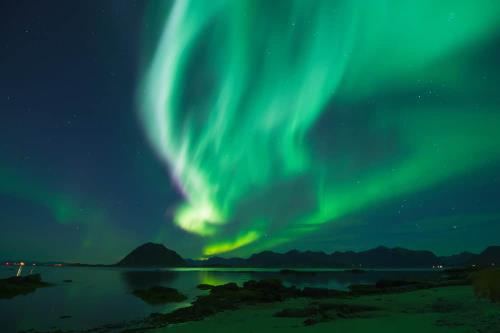
Aurora Borealis is the kind of scientific phenomenon that most people seem to either know everything about or nothing at all. I must admit – until I became interested in global cruising, I don’t think I’d ever heard of this natural wonder with the weirdest of names. But if you are thinking of cruising to Alaska in this lifetime, I am practically begging you to learn just a little bit about the Borealis, because you may want to plan any entire life-changing Norwegian cruise vacation around it.
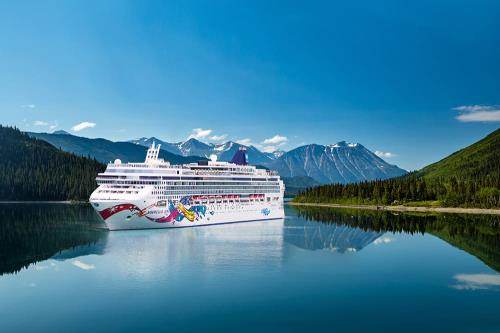
Are you planning for a 2024 Alaska cruise? You'll be pleased to find that Norwegian Cruise Line offers a selection of Alaska cruise vacation options.
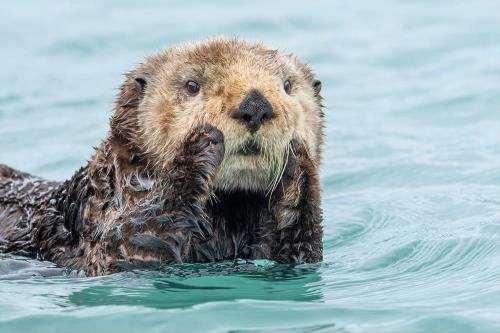
Photo Credit: Barrett Hedges, National Geographic Photographer
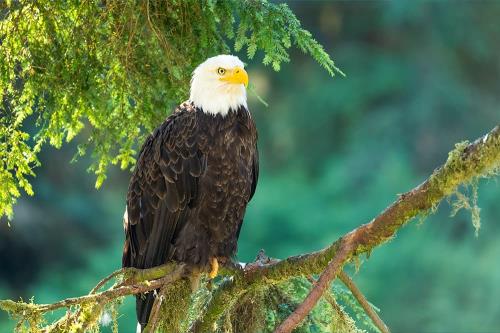
Photo Credit: Barrett Hedges, National Geographic Photographer
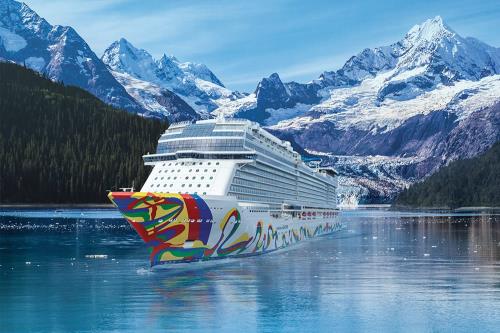
Brought to life in partnership with Voyij.com
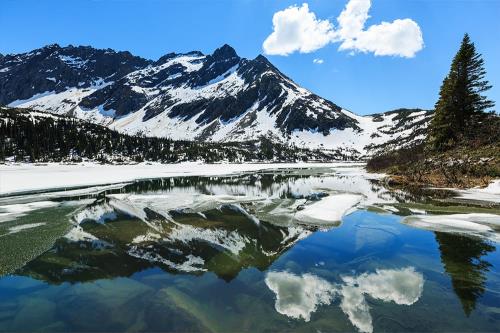
A bucket list trip for many travelers is a cruise to Alaska. You'll see breathtaking scenery every day as you cruise between destinations. There's also plenty to see and do when you have a port day. One of the most popular stops on an Alaska cruise is Skagway, offering a mix of adventurous activities, wildlife sighting opportunities, and historic Klondike Gold Rush experiences.
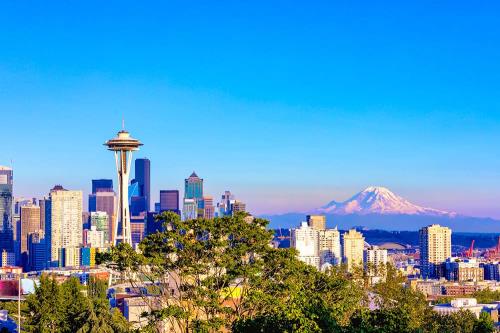
What if there was a place where you could enjoy world-class urban attractions coupled with incredible outdoor activities? Well, Seattle, Washington, boasts all that and more. From the spectacular Seattle Center to the incredible water, mountains, and evergreen forests that surround the city, cruises from Seattle offer something for everyone to enjoy. Located on Puget Sound across from the Olympic Mountains, the enchanting city of Seattle is a jewel of the Pacific Northwest region. Where else can you enjoy a thriving culinary scene, quaint indie boutiques, vibrant artisan markets, diverse neighborhoods, and unrivaled natural beauty without ever leaving the city?
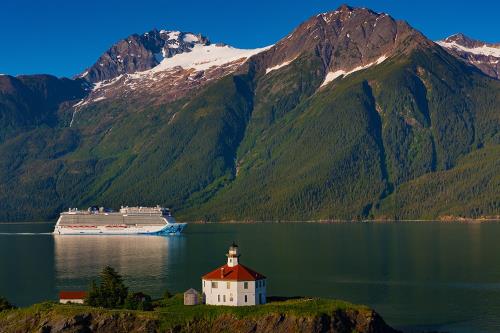
Seward is located just a few hours south of Anchorage. It is a picturesque coastal town on the Kenai Peninsula, known for its stunning natural beauty and abundant wildlife. All of this helps make Seward one of the most popular destinations for visitors to Alaska, including those on a cruise vacation. If your Norwegian itinerary stops in Seward, there are plenty of fun outdoor activities your family can enjoy during your visit.
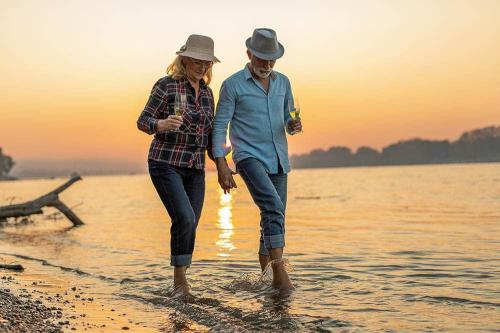
There's something to be said about the newfound freedom the proverbial golden years can afford a seasoned traveler. With retirement on the horizon, you'll have more time to travel and see all the incredible destinations you've dreamed about visiting without the usual restrictions that come with limited vacation days and paid time off. Norwegian Cruise Line can take you where you want to be now that you have the freedom and flexibility to get there.

Are you planning for a 2024 Alaska cruise? You'll be pleased to find that Norwegian Cruise Line offers a selection of Alaska cruise vacation options.
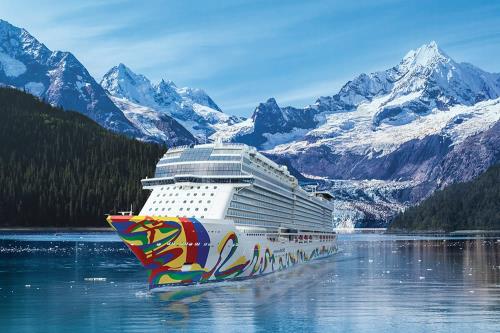
There's something about cruising Alaska that fills travelers with awe and exhilaration. Perhaps it's sailing past expansive glaciers glistening in the sunlight. Maybe it's witnessing The Last Frontier's dramatic terrain that transforms from wildflower-studded fields to immense old-growth forests that bow before snowcapped mountains stretching up toward the glow of the Northern Lights, all from the deck of your cruise ship. Or perhaps it's the opportunity to come closer to the diverse range of wildlife claiming the surrounding waterways and storied landscapes as their home. No matter what aspect of Alaska you connect with, one thing is certain — you'll want to soak in as much of the natural beauty and stunning vistas as possible during your cruise vacation.
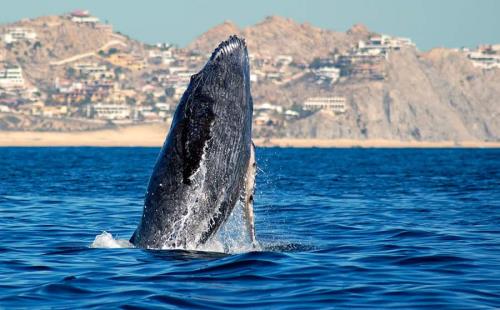
One of the most exhilarating activities people enjoy on a Norwegian cruise vacation is whale watching. Whales are the majestic giants of the sea and having an opportunity to see one or more of these magnificent mammals is something that is a joy to experience. There are many locations around the world where whale watching is possible, and the migration patterns of the whales luckily coincide with the migration pattern of our fleet of Norwegian cruise ships. That means there are plenty of options for whale watching shore excursions on Norwegian cruises around the world.
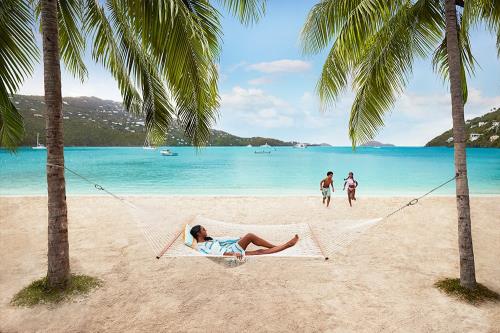
Are you trying to decide where to plan your next summer vacation? Why not book a cruise with Norwegian? Choose from numerous itineraries this summer, including The Caribbean, Bermuda, and the Greek Isles. However, not all summer cruise itineraries are headed to the warmer parts of the world. For travelers looking to cool down on their cruise, consider cold-weather destinations like Alaska or Iceland.
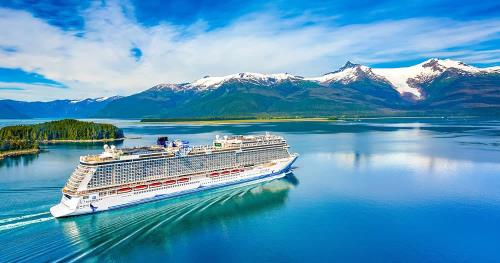
If you’re thinking about planning a summer cruise, Alaska may be the perfect destination for you. The Alaskan cruise season lasts from May to October, and the warmest months for travel are typically June, July, and August. Alaskan cruises may seem suited only for people who like extreme weather, but the truth is that the weather in Alaska varies widely based on the region.
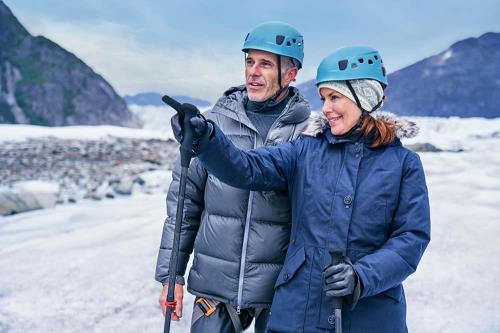
Finding what to wear on an Alaska cruise can be a challenging endeavor. You might encounter varying climates and need different shoes and clothing items depending on the shore excursions you plan to book. When you sail with Norwegian, you don't need to worry about formal attire on top of all the cold-weather clothing you need to bring.
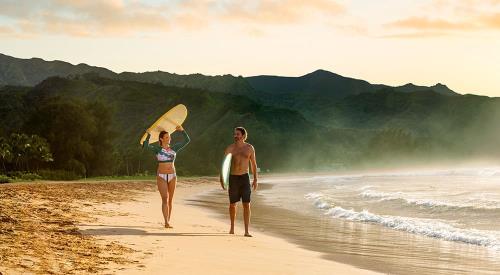
Did you know it's possible to cruise without a passport? Many people don't know that as a U.S. Citizen, you can take advantage of the benefits of no-passport cruises for itineraries that begin and end at a U.S. Port.

There’s a lot of ground to cover in Alaska, from its vast and rugged terrain to the many animals that call it home. Planning a vacation to the Last Frontier can be a tall order; that’s why a cruise is, hands down, the easiest way for you to see and experience the beauty, adventure and culture that travelers rave about when they visit the massive state.

Known as the Last Frontier, Alaska is an untouched region home to incredible wonders, and there are few better ways to take in the thrills of seeing glaciers and humpback whales than on board a cruise—especially on a ship like Royal Caribbean’s Ovation of the Seas.

Want to experience Alaska and all it has to offer? There are endless sights to see while exploring the state’s spacious land and sailing its surrounding ocean. More than twice the size of Texas and with more coastline than all U.S. states combined, there’s a lot of ground (literally and figuratively!) to cover in the Last Frontier. For a vacation filled with variety and never-ending excitement, look no further than a cruise to Alaska.

There are a handful of places in the world where you can watch the magical moment a whale leaps out of the waves, crashing back into the water just seconds later. The special experience is just one of the reasons why Alaska tops many travel lists. If you want to enjoy whale watching—and make memories on other adventures like dog sledding and exploring ice caves—then look no further than a cruise to Alaska.

Alaska, the largest state in the U.S., is a hugely popular destination for its seemingly endless rugged landscapes and incredible wildlife, such as black bears, bald eagles and moose.

Think you’ve had a sweet gig? Meet Harry McNulty. A native of Dublin, Ireland, Harry won Royal Caribbean’s Shore Explorer contest in 2019, which meant he got the once-in-a-lifetime opportunity to visit six different countries over the course of three weeks. He documented his adventures, showing us just how many incredible things you can see and do on a cruise.
Vincent Cruises - Authorized Alaska Vacation Planner
Questions? Call us at
1 (888) 883-0460
Contact us for the latest Alaska deals.
For Groups of 10
or more rooms, or 8 or more Cabins, please use of Group Form
Click Here for our Group Department
Click on a location below to learn more. We recognize that vacations are not just an investment, but often the highlights of our lives, and we take that responsibility seriously. We want to ensure you have the best experience.

All of these are signs that you are a great fit to become an independent travel agent, and turn your love of travel from passion into profit!
Learn MoreOur motto at Vincent Vacations is, we go so you know! We want to ensure you have the BEST experience, whether it's a river cruise, or a corporate group incentive trip, we want to ensure your vacation is a success.
We serve customers all across the USA
Debt free and in business since 2013. Vincent Vacations has agents in Dallas, Kansas City, Houston, Shreveport, Little Rock, Roswell, Oklahoma City and more locations.

Travel agents can help save time and stress by doing the research and handling all your bookings for you. An experience travel agent is best at finding great deals and packages, as well as providing you with helpful information and tips. They can also help you plan special activities and experiences that you may not have thought of on your own. All in all, using a travel agent can be a great way to make sure you get the most out of your trip.
In travel since 2002, and in business since 2013, our travel team serves clients all over the US. Planning a vacation away from home takes a great team. We have taken the time to build a team of dedicated, smart, hard-working personnel who are each committed to excellence and service. We work side-by-side, creating and ensuring INCREDIBLE vacation experiences for you and your group. Our store front in-office team, and our travel consultant independent contractors, work all around the US - we even have a travel agent who lives in Mexico!


In business since 2013, we are your #1 source for travel!
Free Cruise Package Quote